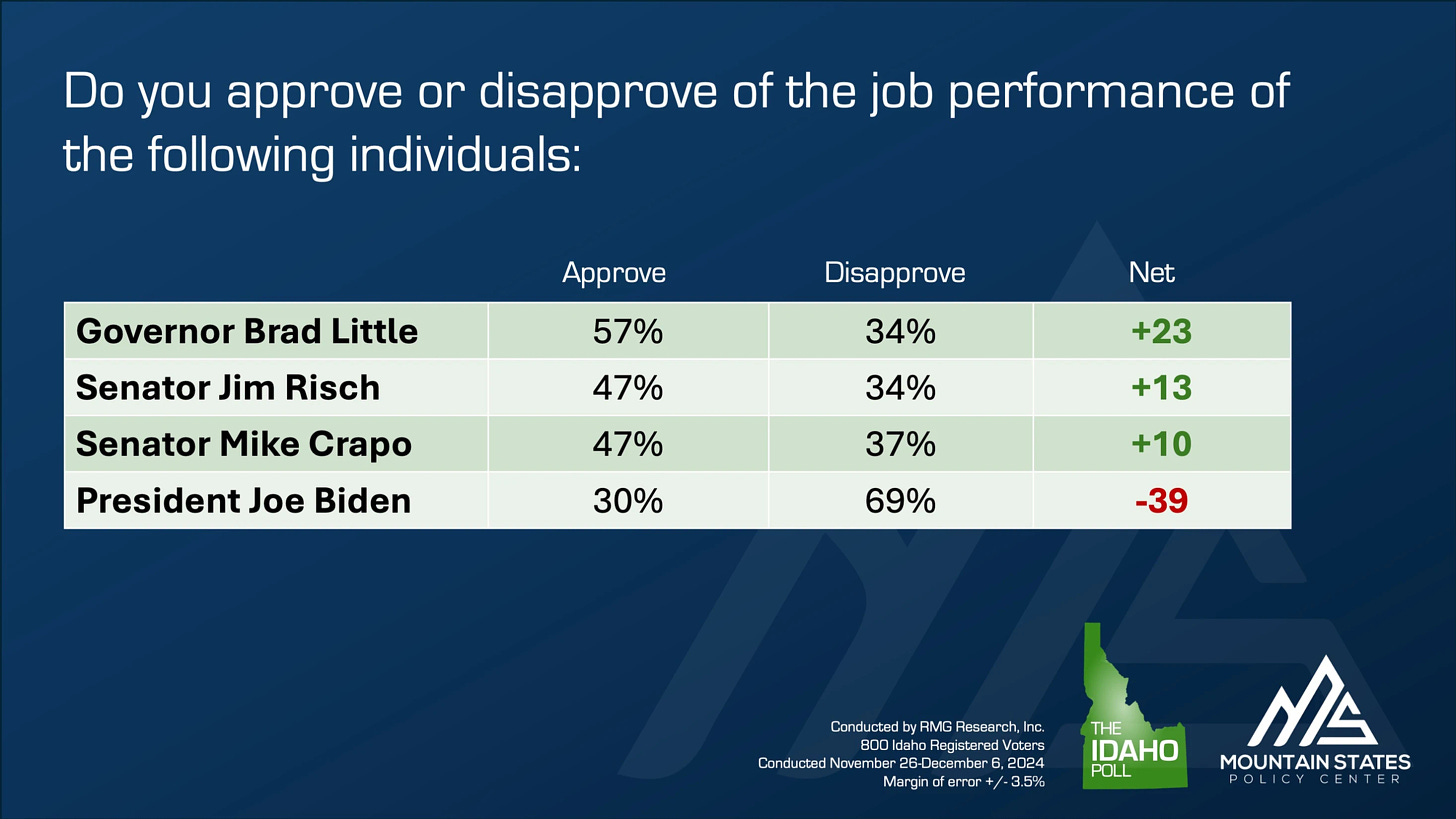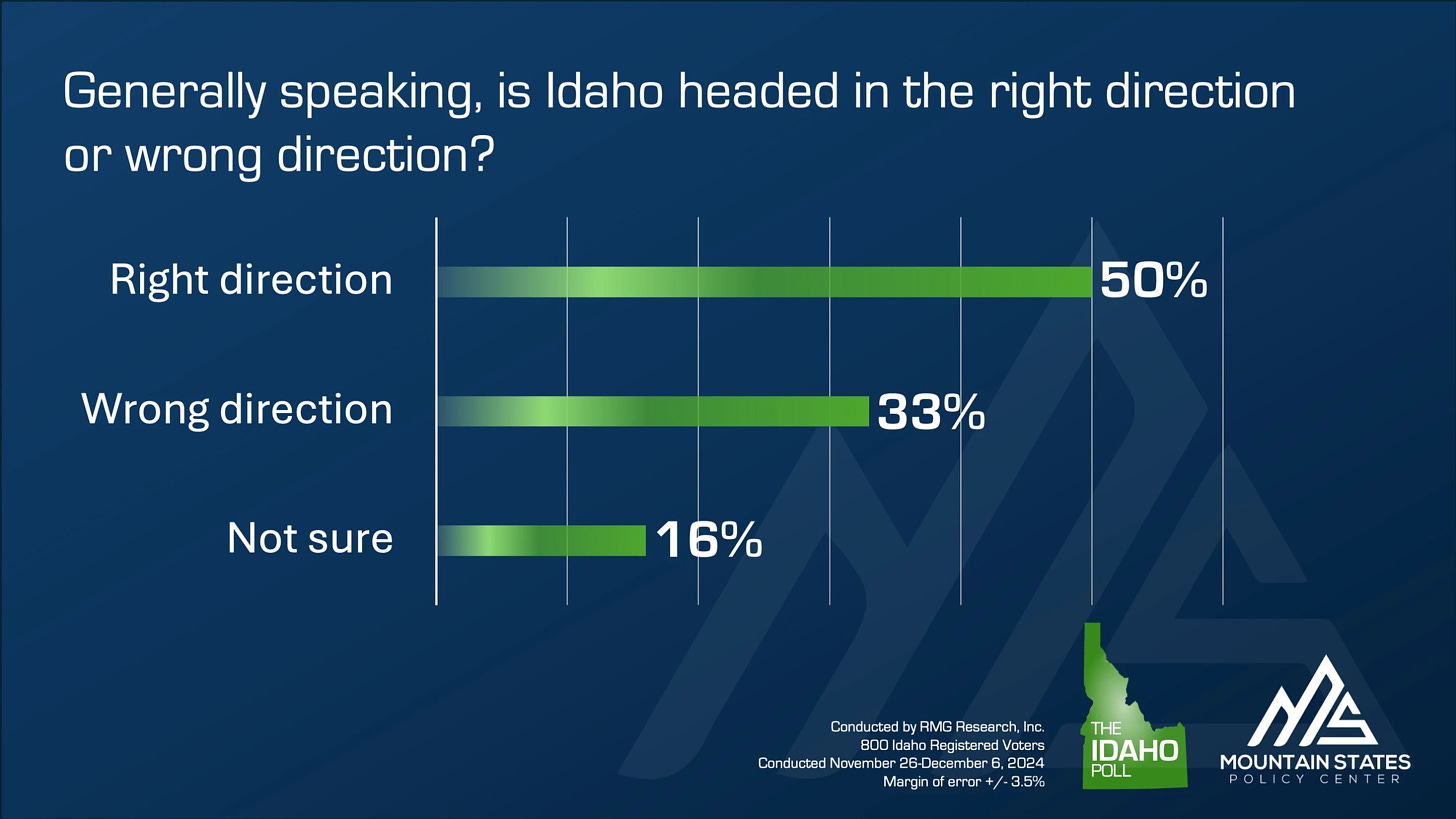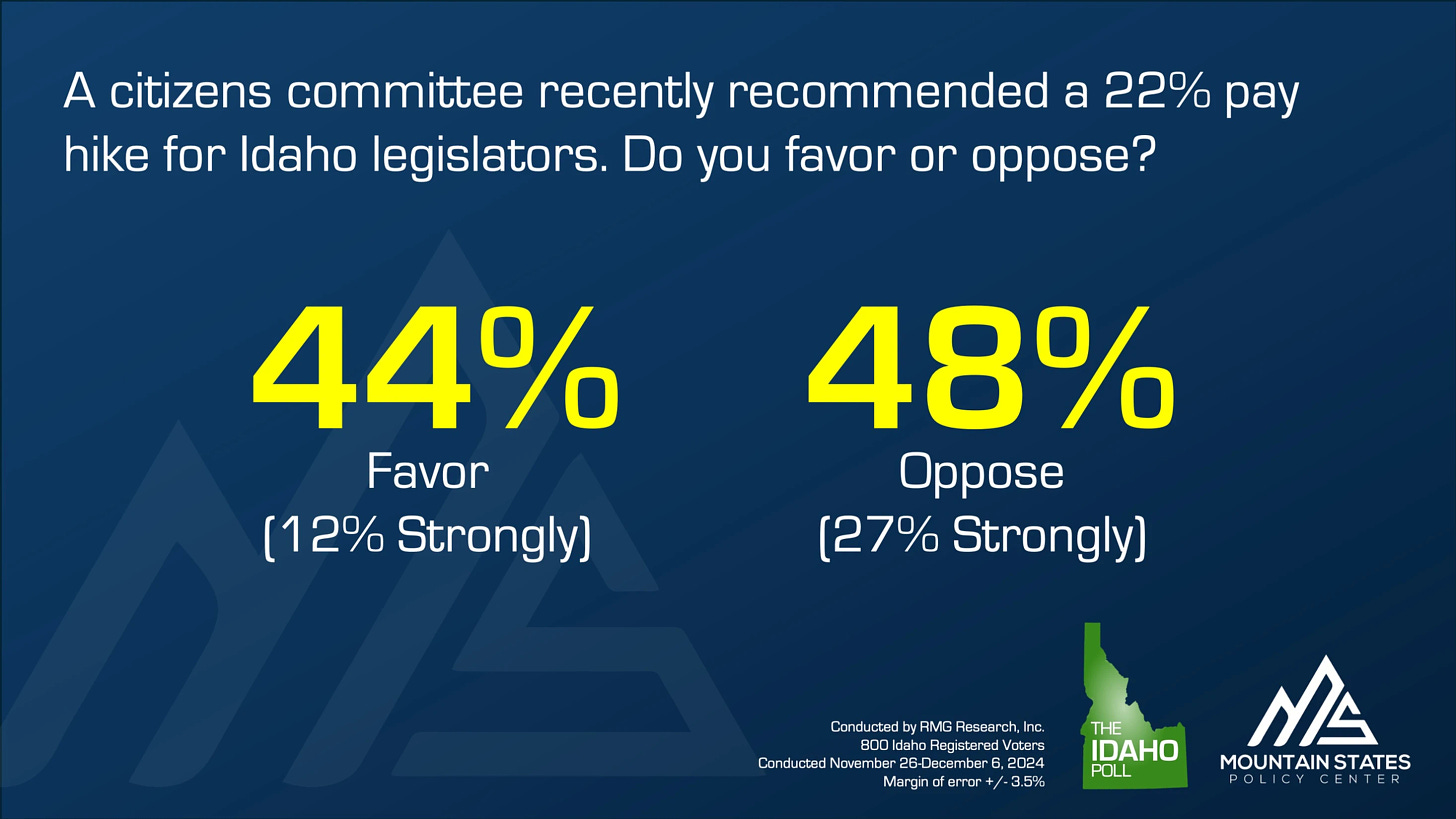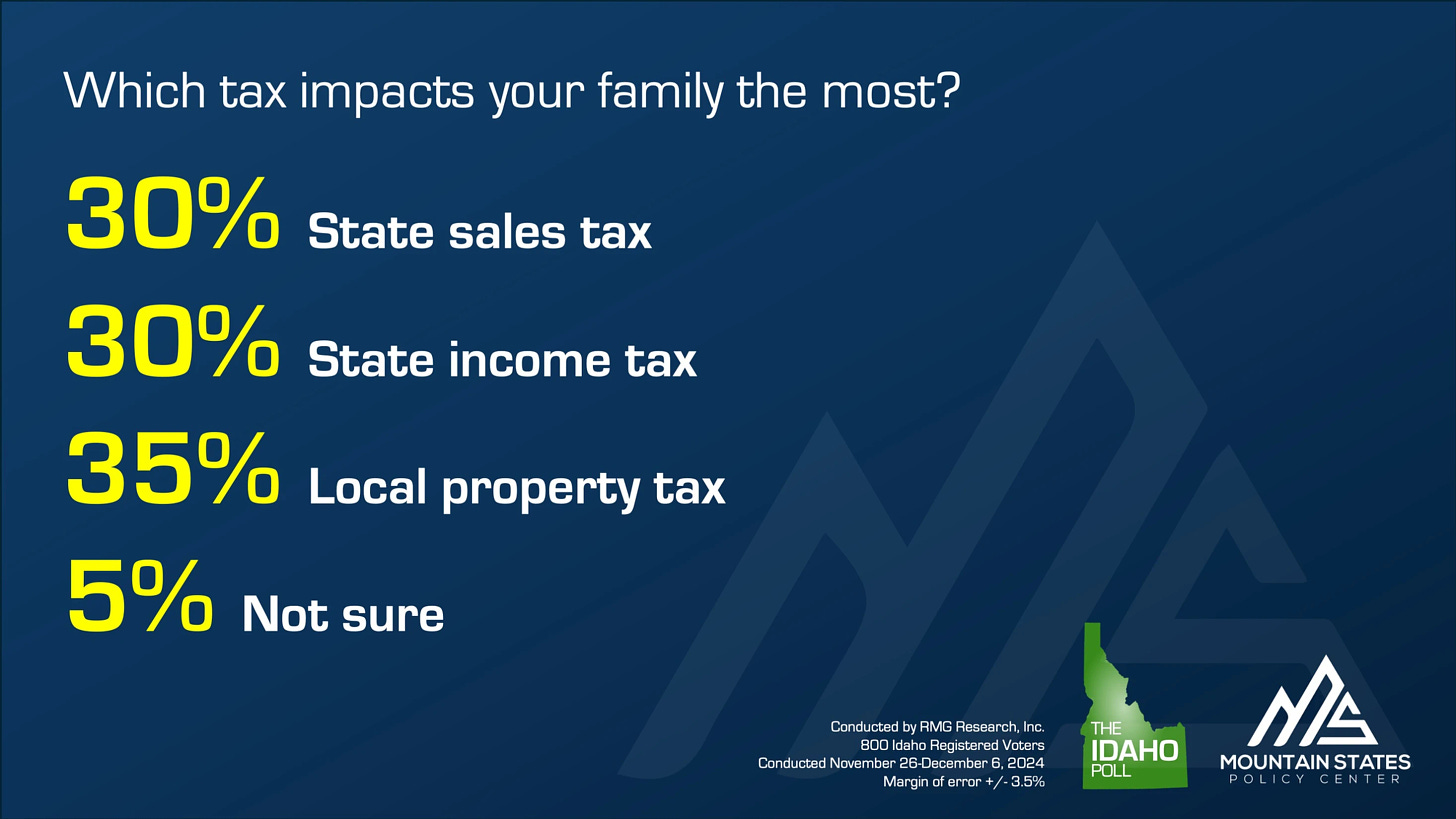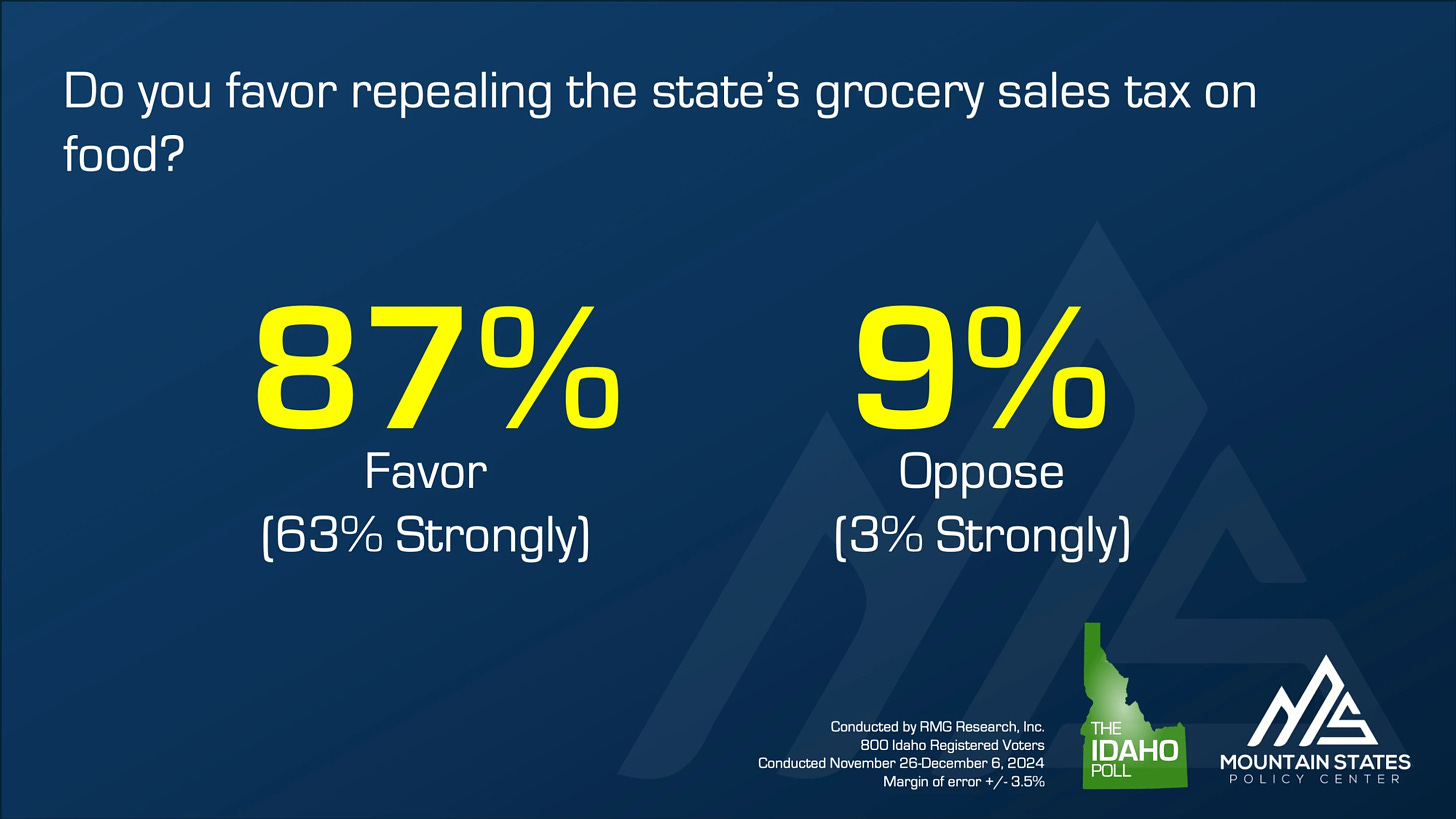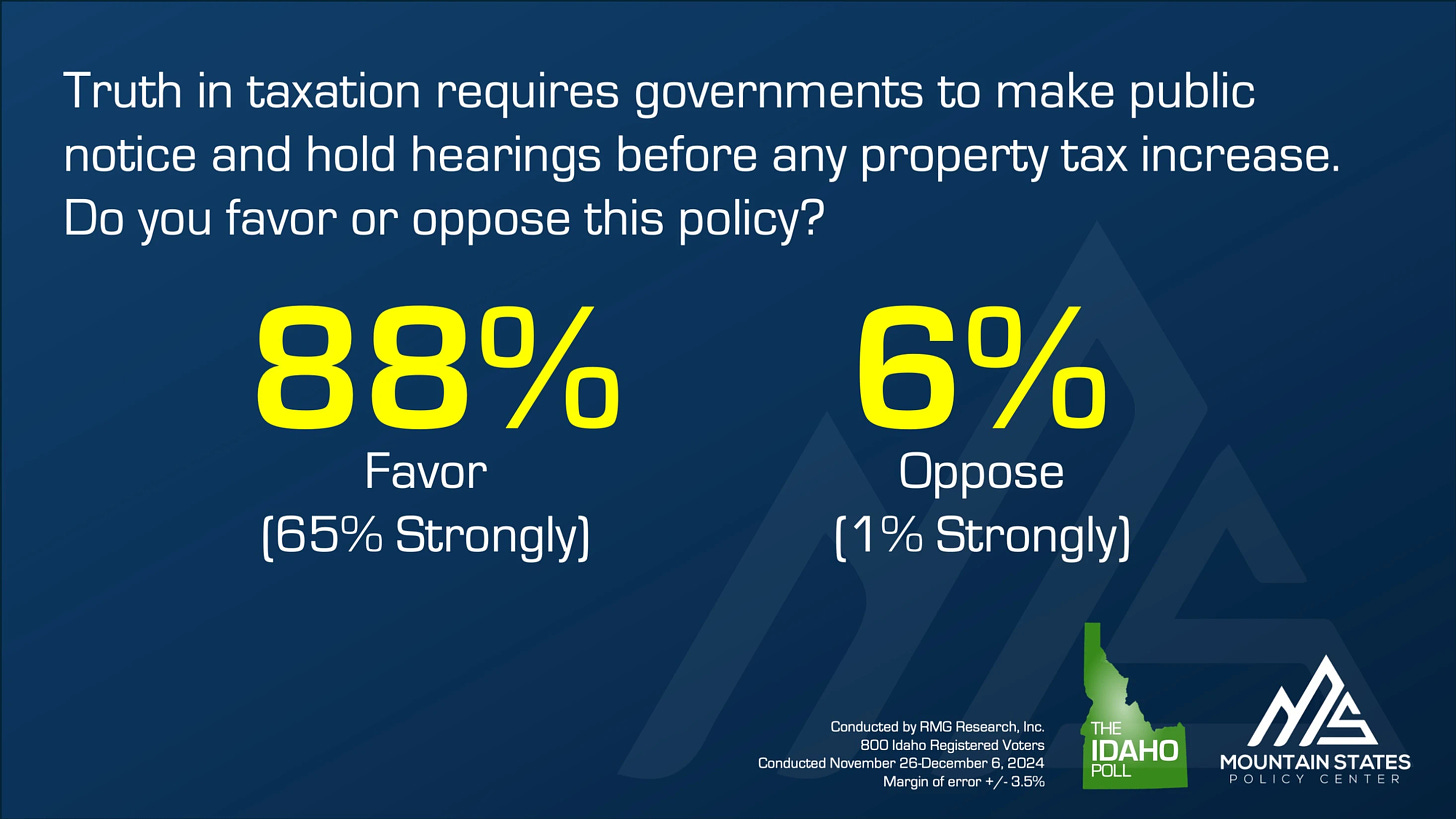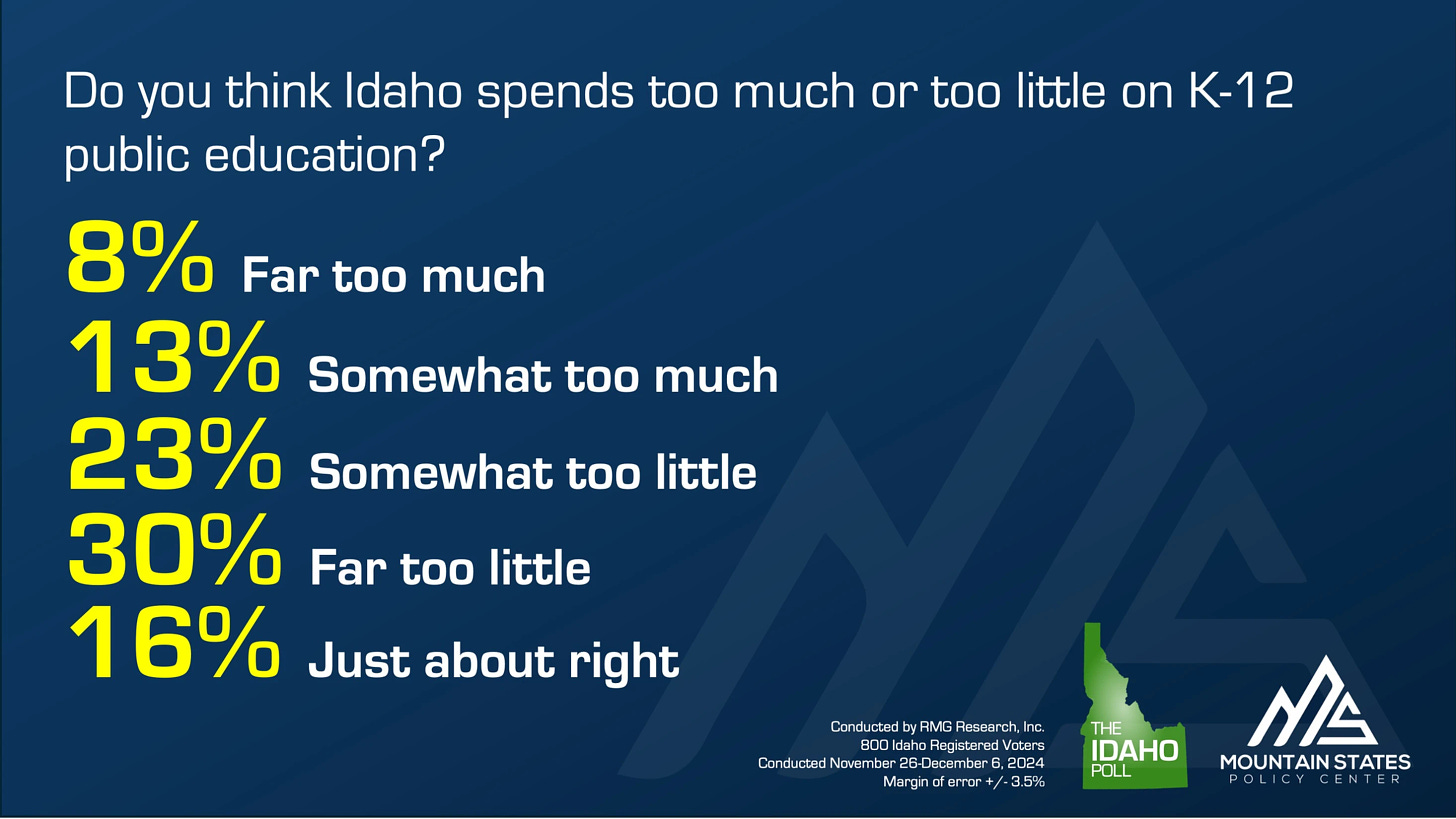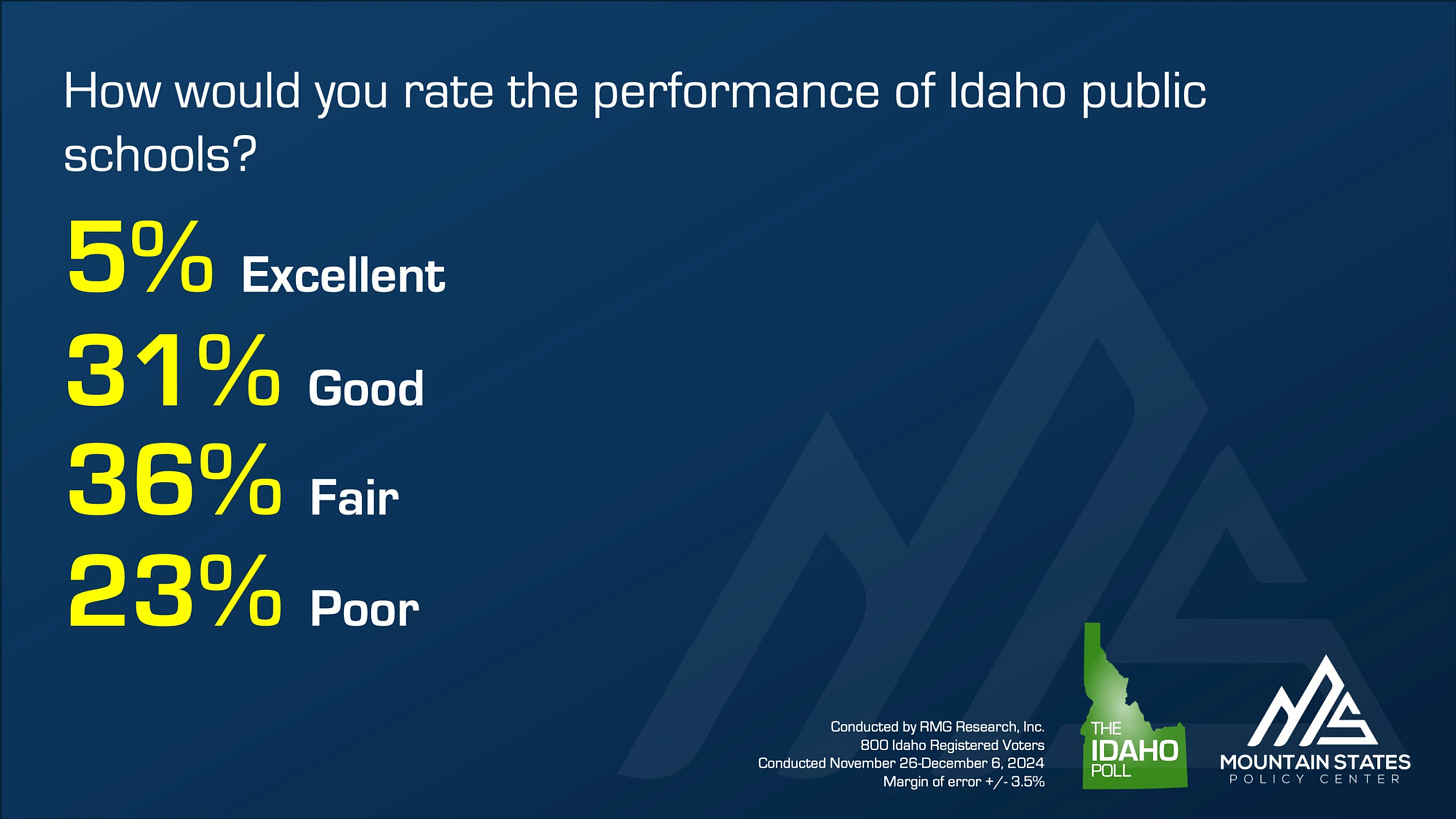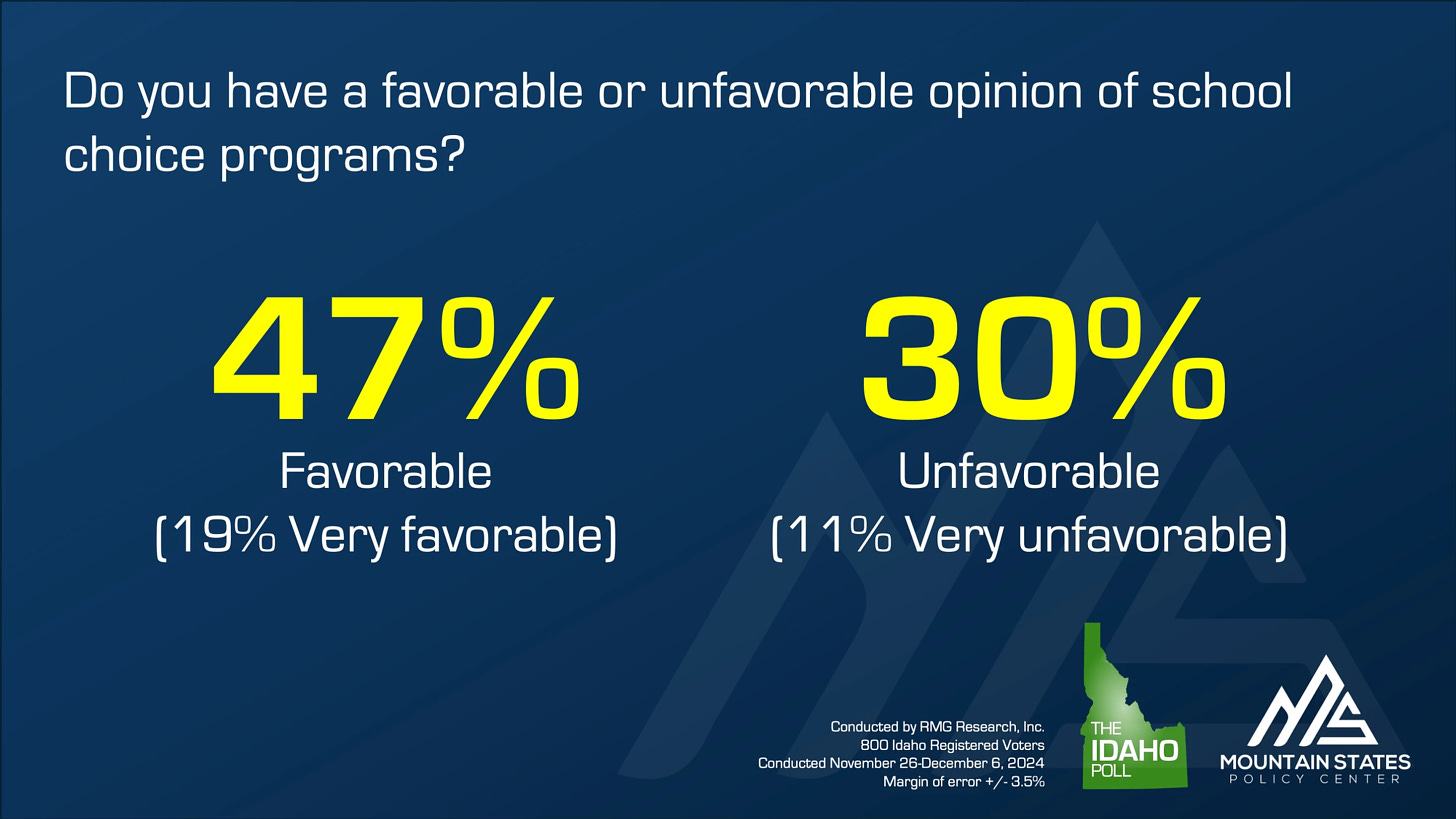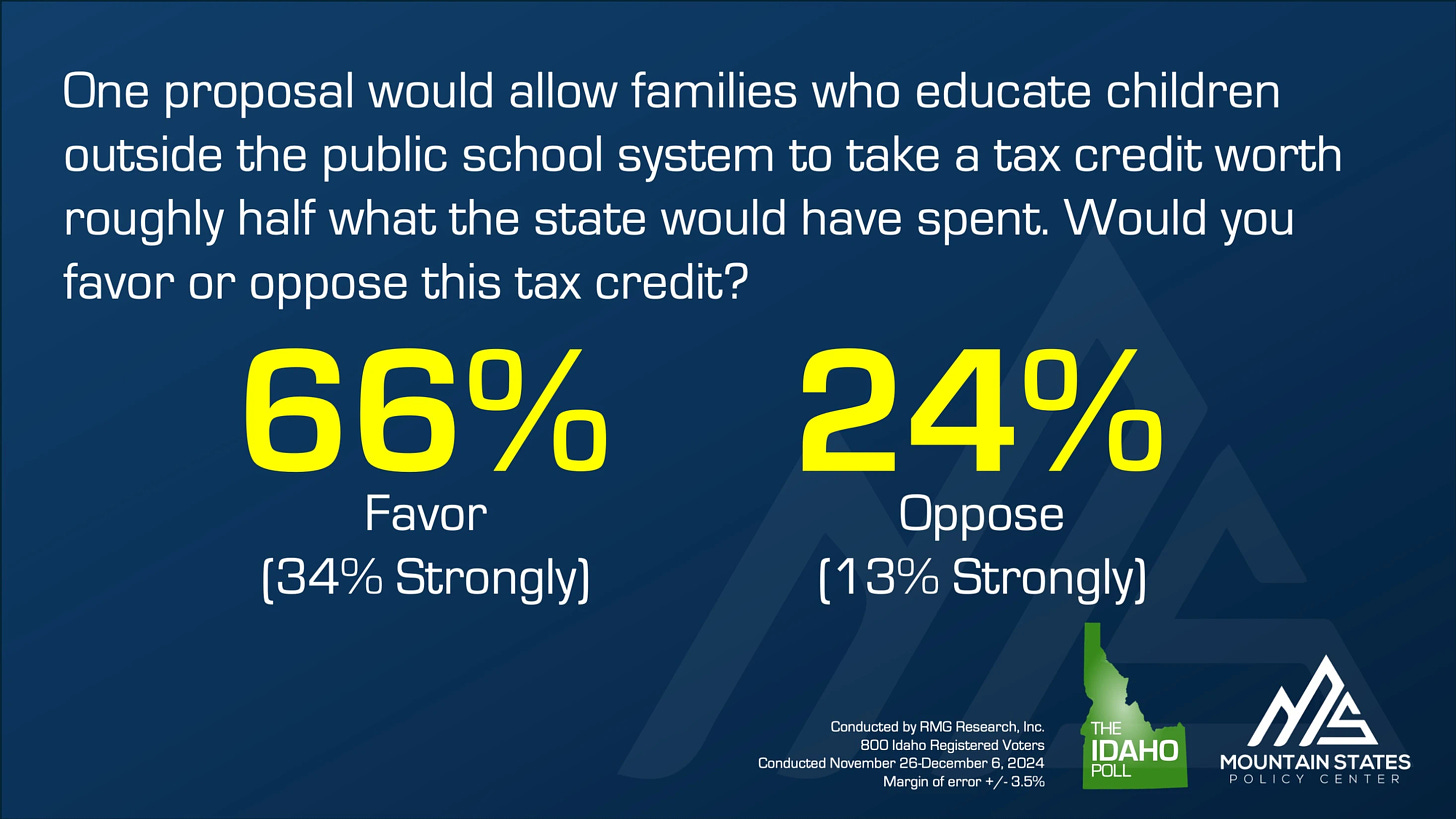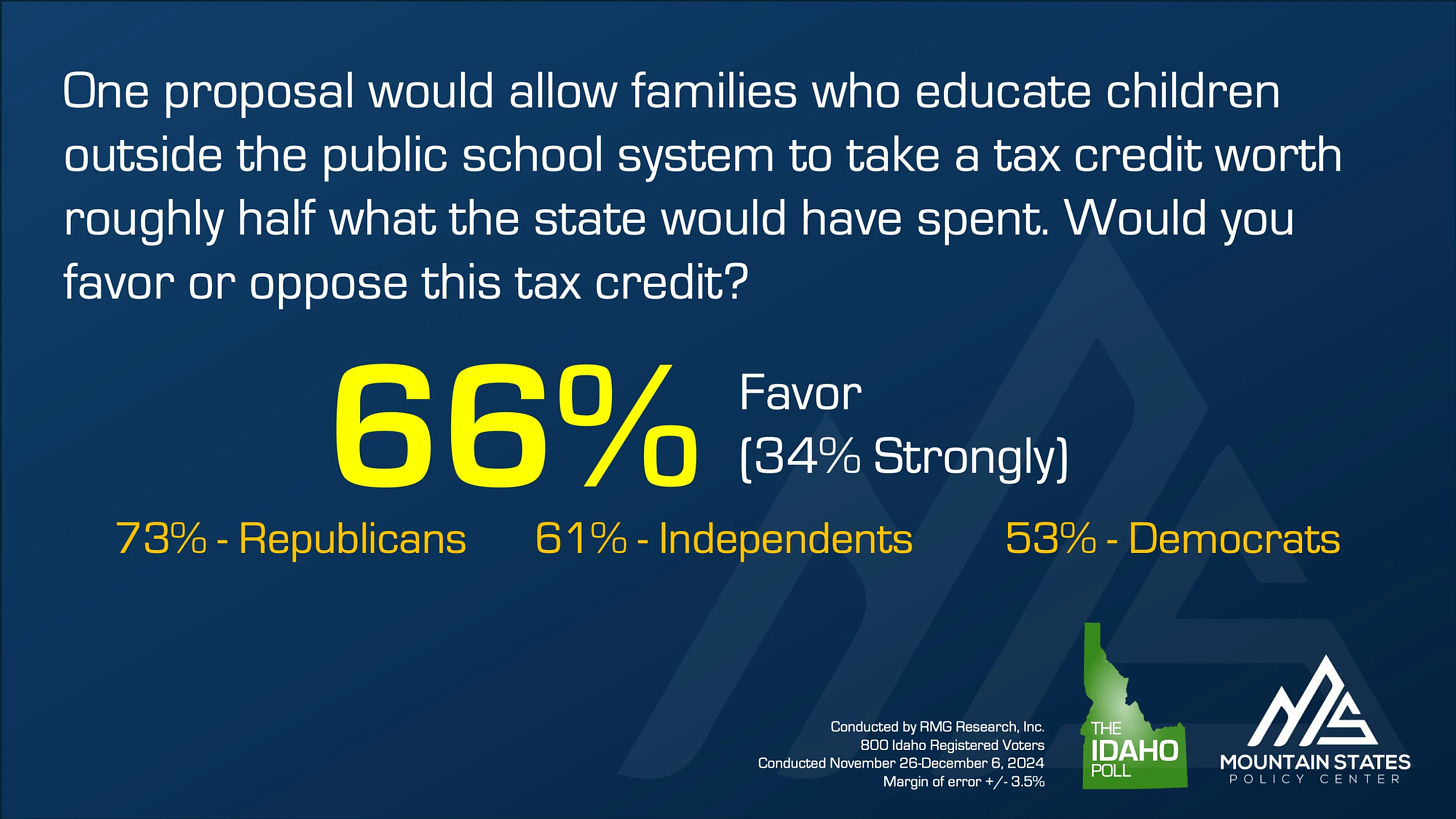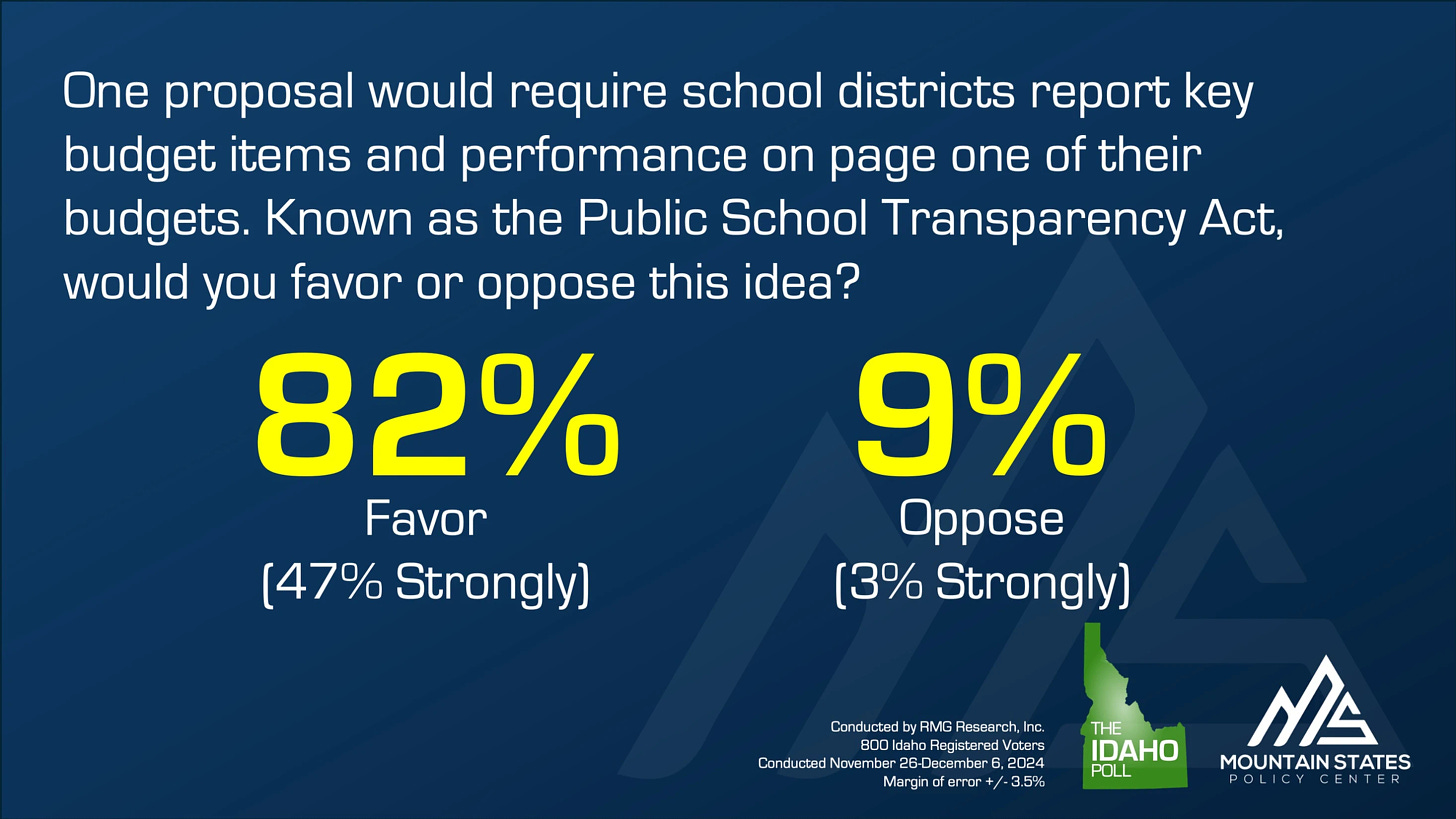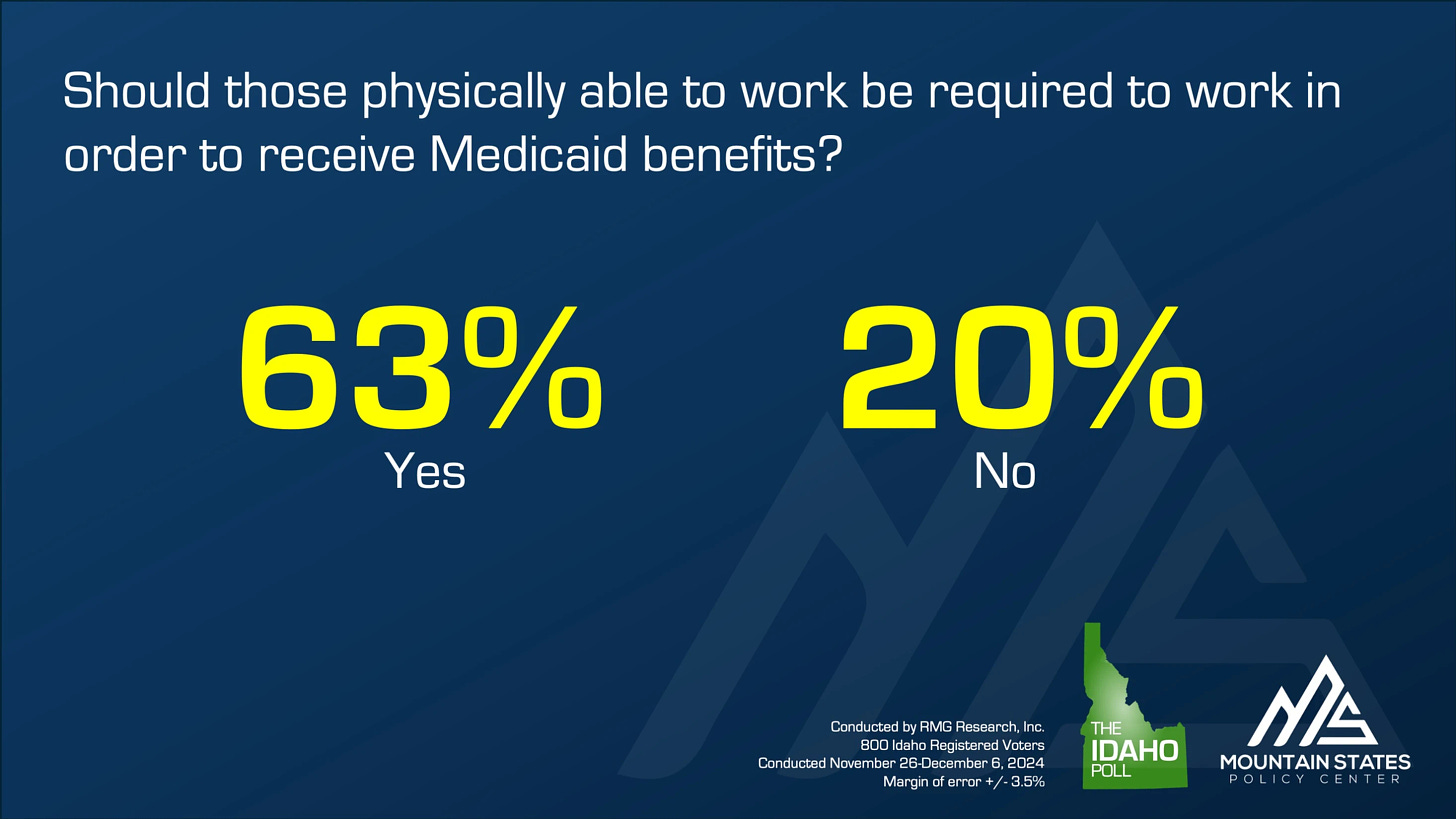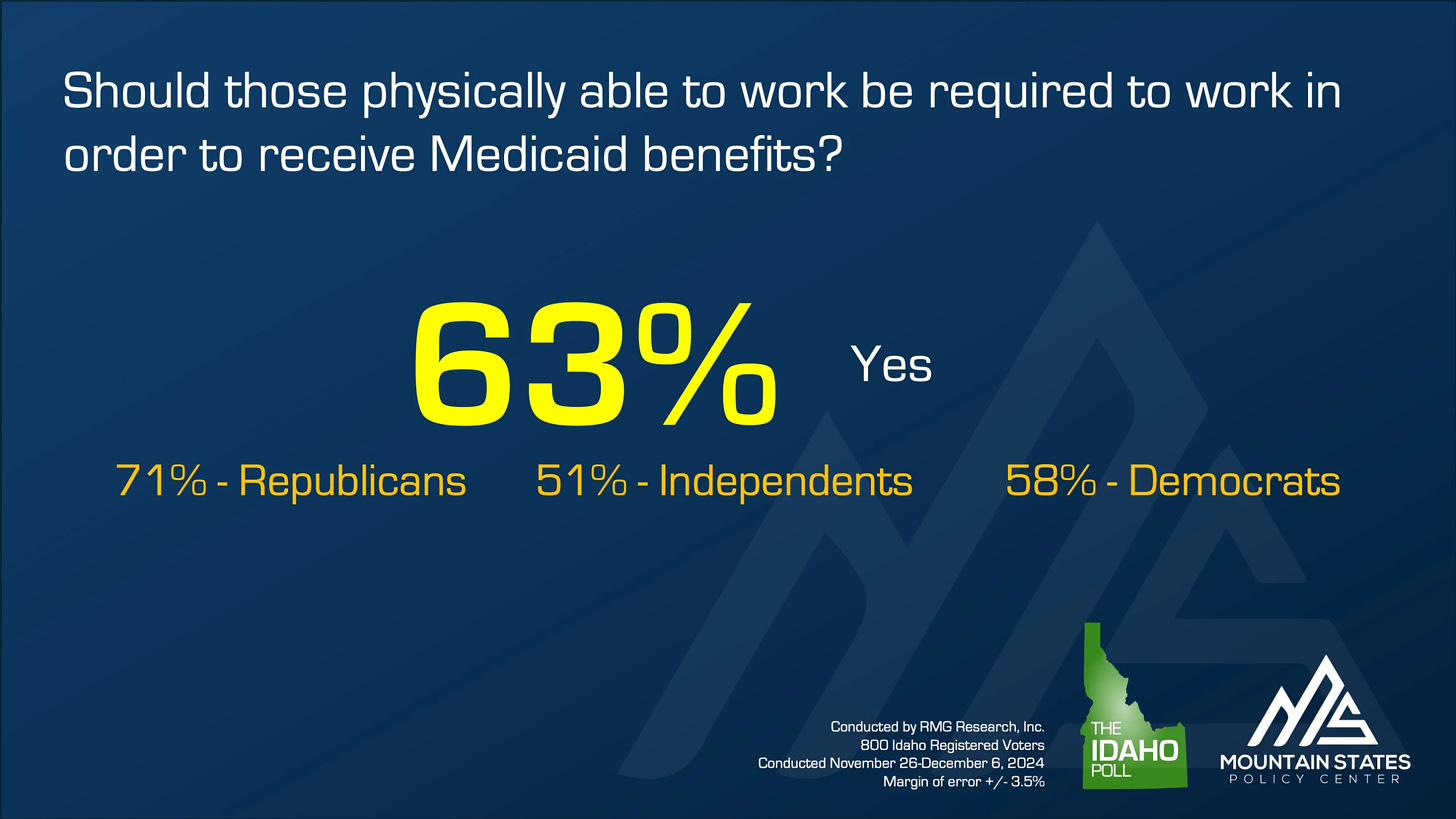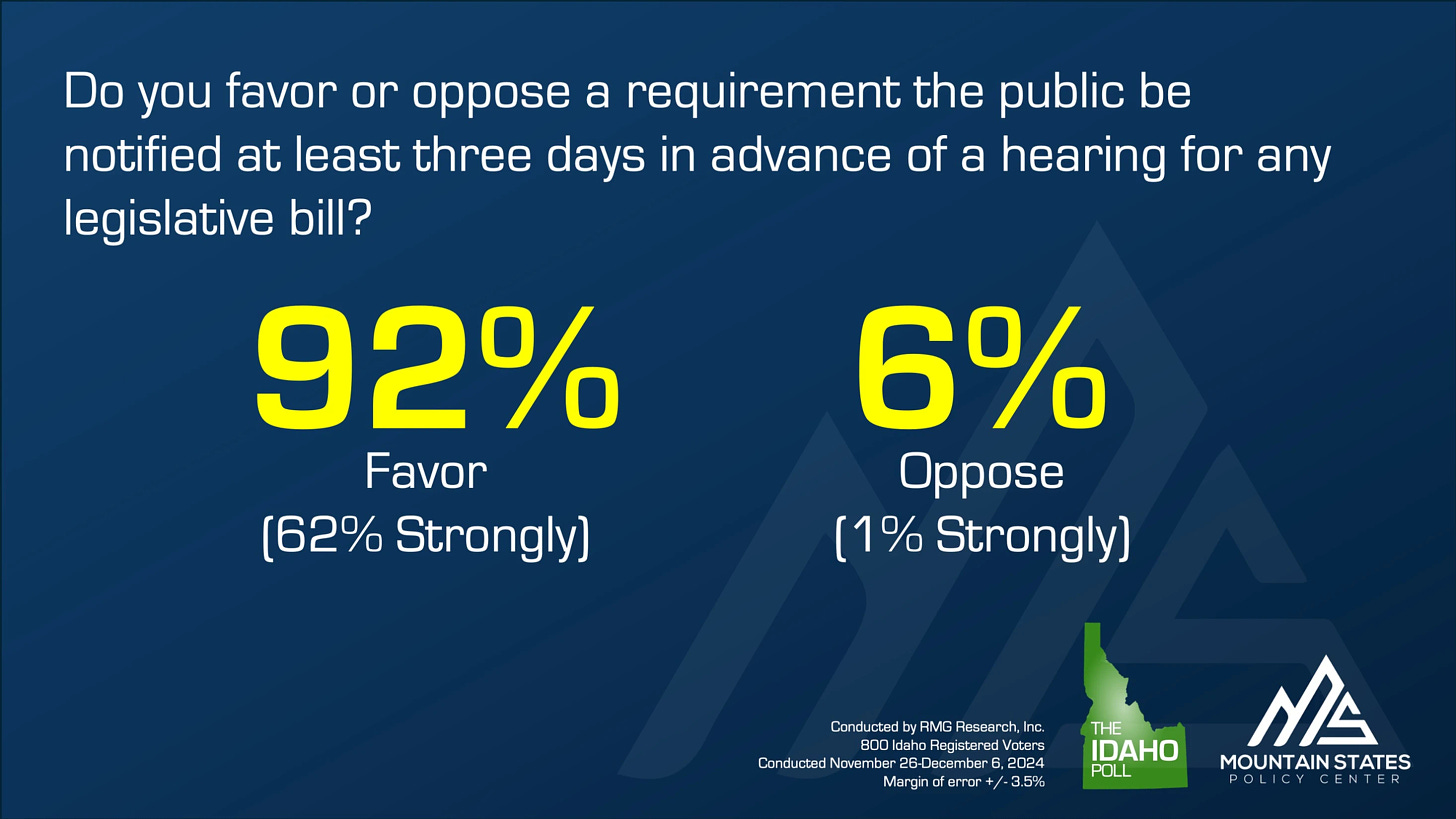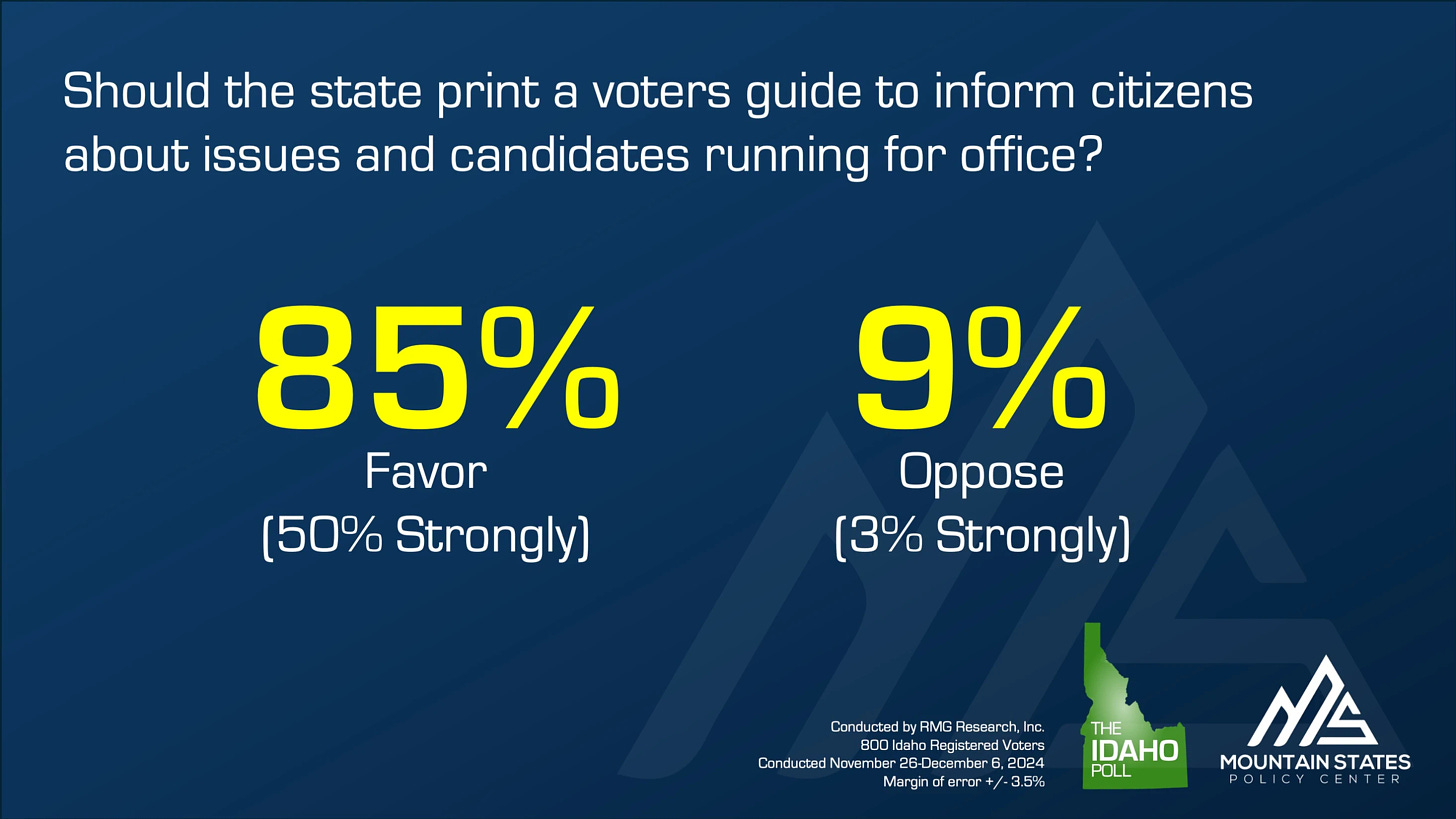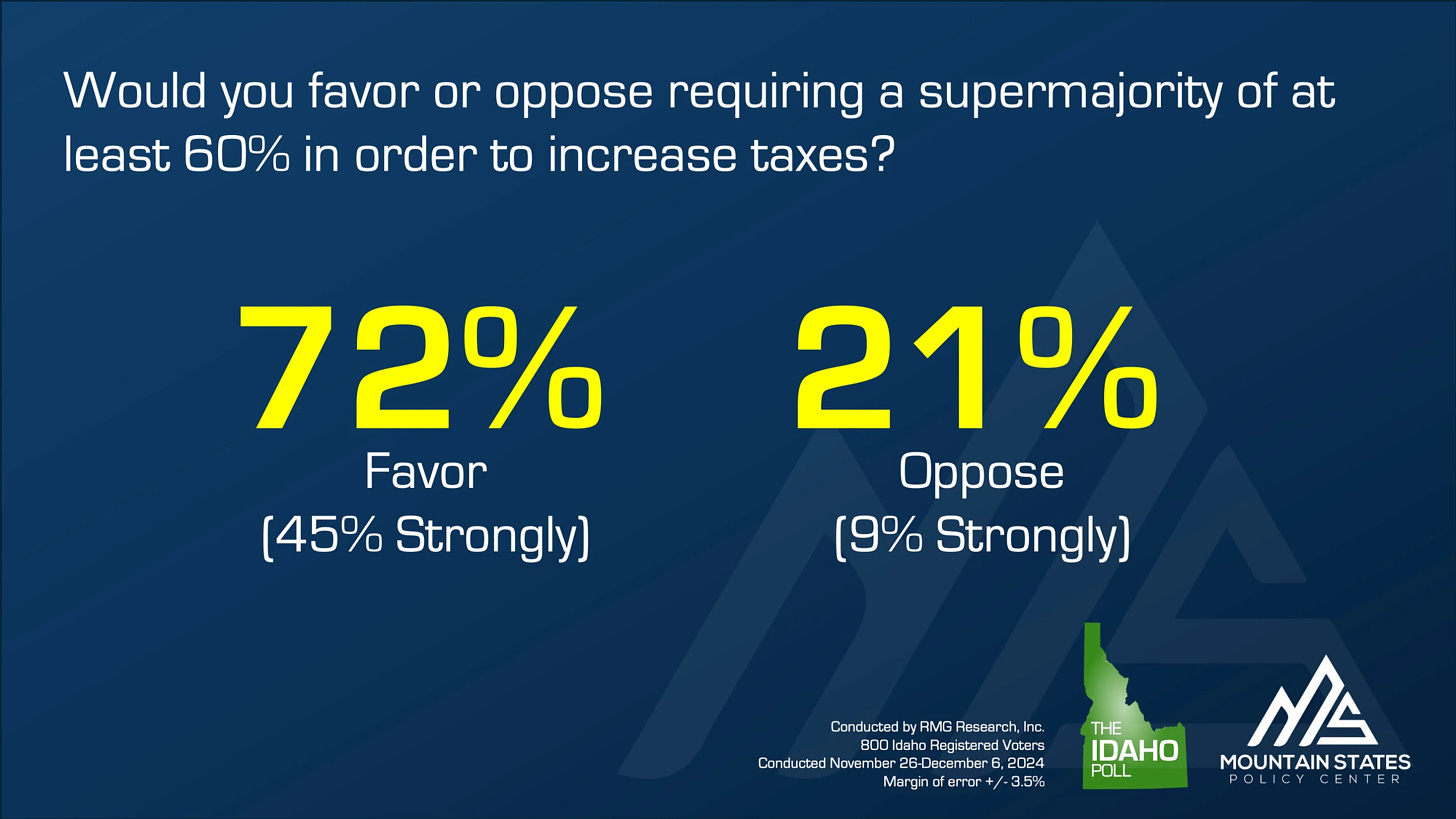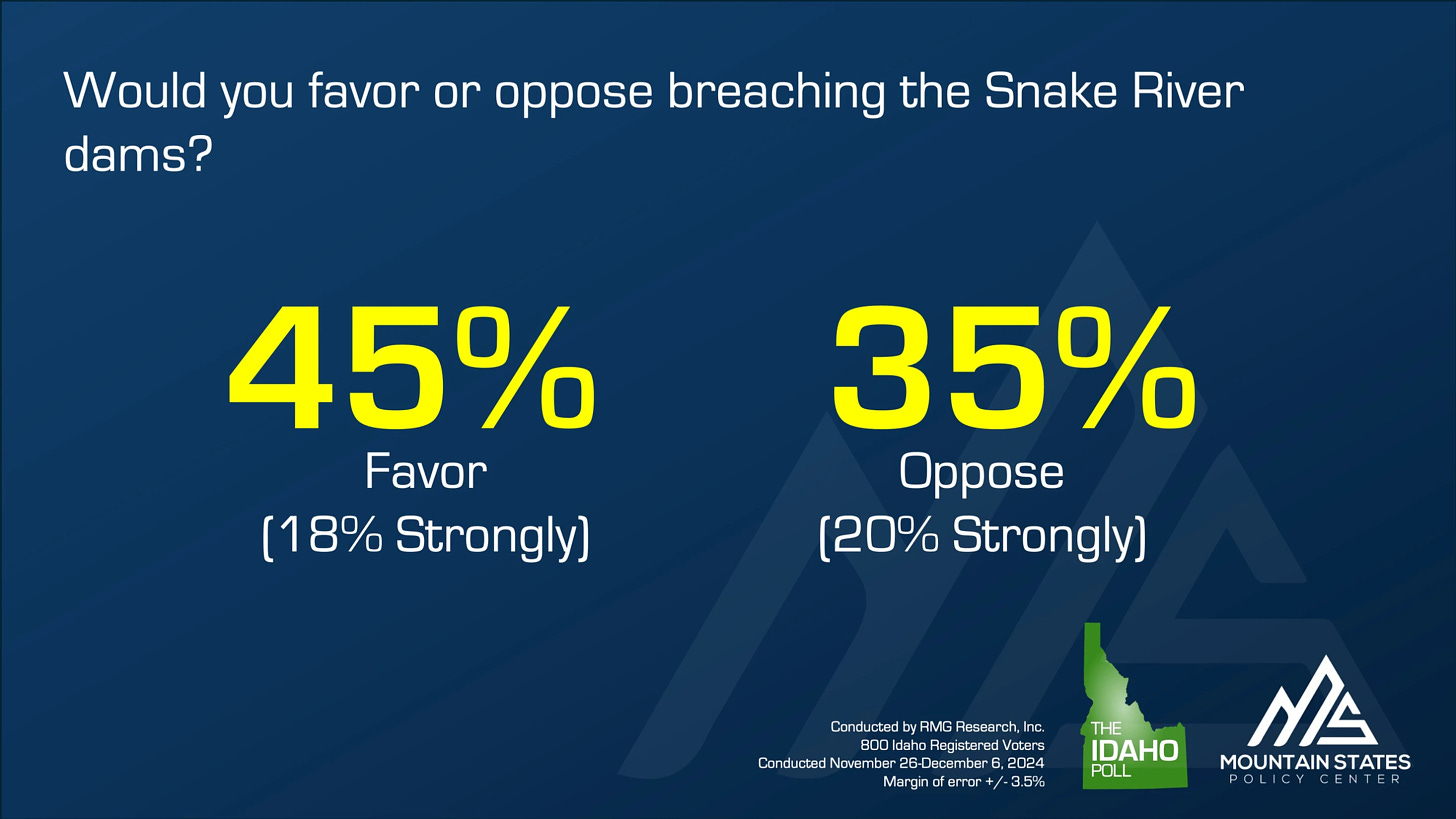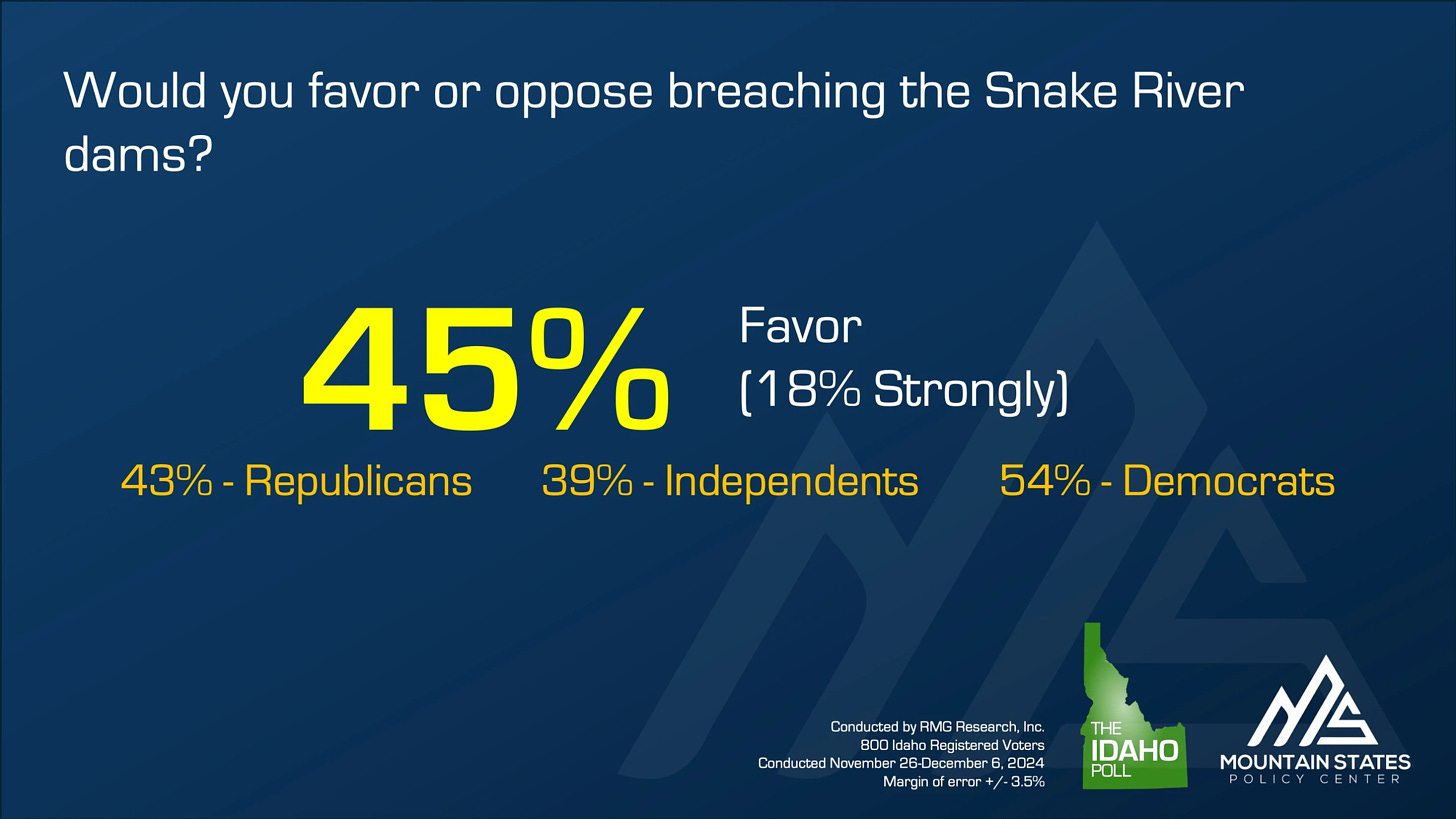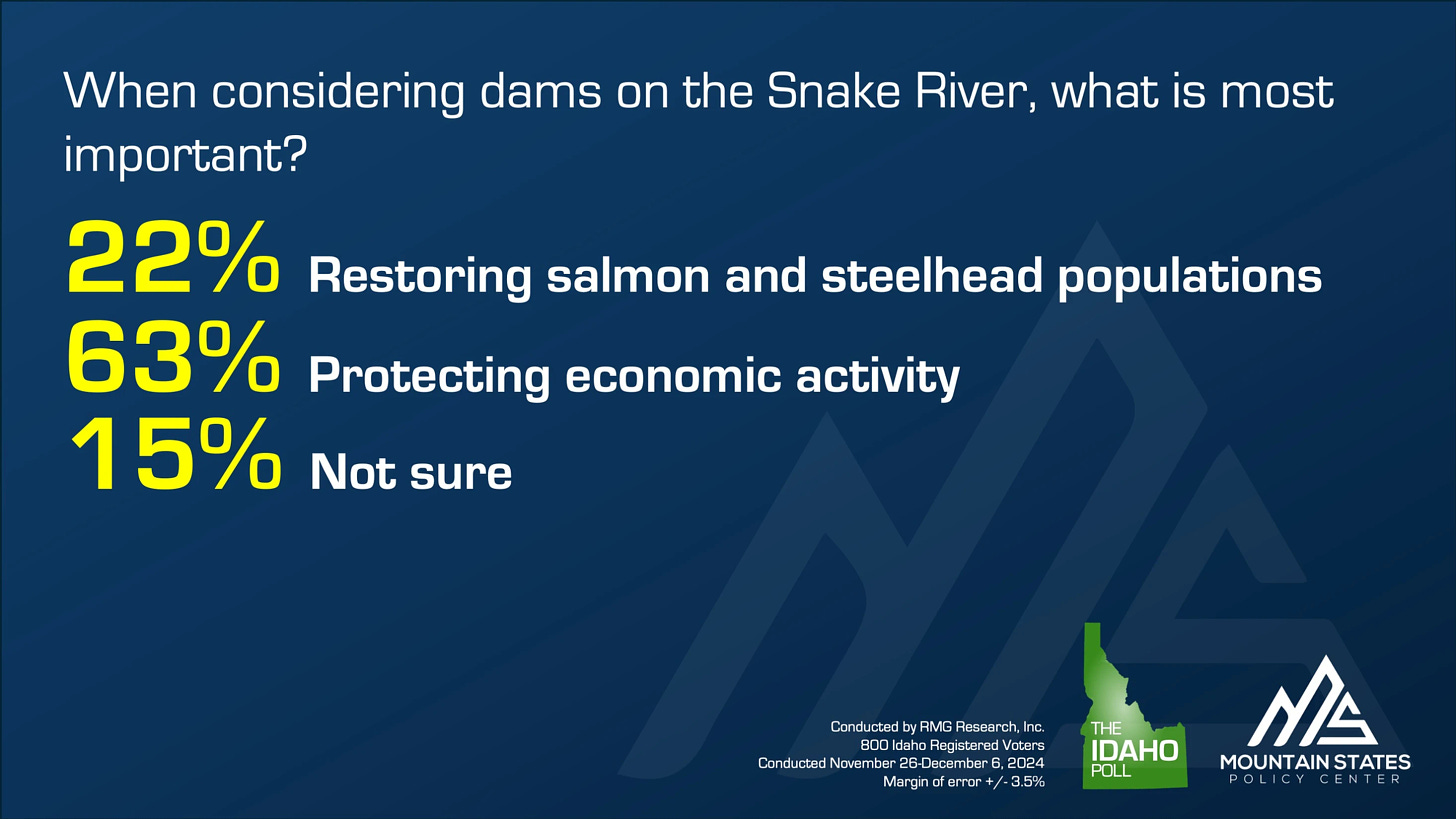If your email provider truncates this article, read the whole thing at the Gem State Chronicle.
Last week, Mountain States Policy Center (MSPC) released the results of its Idaho Poll. 800 Idahoans were surveyed over the course of nearly two weeks to get a picture of what citizens expect from the upcoming session. Check out the full results here, including a link to the cross tabs for data nerds to parse.
Yesterday afternoon I spoke with Chris Cargill, president of MSPC, to get his thoughts on these results and what they mean for Idaho going forward.
We all have our opinions, and most of us strive to stay rooted in time-tested principles and traditional values. However, in the American Republic, accomplishing anything requires either aligning with the will of the people or persuading them to support your position.
Yet how can we know the will of the people? Most of us live in bubbles of varying sizes, surrounded by like-minded individuals. These bubbles can make it easy to assume that our views reflect those of the broader population. Good polling allows us to step outside these bubbles and gain insight into what people really think.
For instance, if you attend a meeting of hardcore conservatives, it might seem as though there’s widespread opposition to figures like Gov. Brad Little or Sens. Mike Crapo and Jim Risch. However, the Idaho Poll reveals a different story: a majority of Idahoans approve of Little, and pluralities support our senators.
One interesting takeaway from the cross tabs is that only 1% of respondents were unsure about President Joe Biden’s performance, whereas uncertainty about our governor and senators was in the double digits. This highlights the need for those of us in independent local media to continue working hard to balance the national coverage that dominates most people's attention.
Half of respondents believe that Idaho is going in the right direction, compared to one third who say it’s going awry. According to the cross tabs, 70% of self-identified Republicans believe Idaho is going in the right direction, while 69% of Democrats believe it’s going the wrong way. Keep that in mind if you’re considering challenging an incumbent state official in 2026.
I’ve written extensively about the proposed legislative pay raise. Most people in my circles are vehemently against it, so it was interesting to see that the public is fairly divided. However, of those who feel strongly one way or another, more than twice as many oppose the raise as support it. The cross tabs reveal that respondents were given the full context of both the 22% number as well as the $25,000 base salary, which I’ve noticed affects how people feel about the issue.
The poll also asked respondents which tax impacts their families the most, and the results were fairly even. Property taxes, which are levied at the local level rather than by the state, were rated as the most impactful. The cross tabs revealed that older Idahoans were significantly more concerned about property taxes, while younger people felt more burdened by income taxes. This makes sense, of course.
The sales tax on groceries is another contentious issue, with many conservative legislators promising to end it this session. 87% of respondents want that tax to go away. However, MSPC supports raising the credit instead. I asked Chris Cargill about that in our conversation, so make sure to check it out.
88% of respondents support requiring local governments to notify residents about proposed tax increases. Currently, residents can attend budget hearings on property tax increases, but few are aware these meetings even take place.
A majority of respondents believe we are not spending enough on public schools, with a plurality believing we spend “far too little”. The specific question in the cross tabs says that Idaho currently spends about $8,500 per student.
On the other hand, a majority of respondents rate our public school system as fair to poor. Perhaps they believe the schools will do better with more money.
Nearly 50% of respondents have a favorable view of school choice programs, which bodes well for our desire to see some form of universal school choice passed in the upcoming session.
A strong majority favor a school choice tax credit, with the question calling for something in the $4,000-$5,000 range. The tax credit bill that failed last year would have allowed families to claim a $5,000 credit, but the program would have been capped at only $40 million. Even a majority of Democrats support a school choice tax credit, which means their party is incredibly out of step with its own voters on this issue.
A resounding majority wants to see simplified information about school district budgets made available. This seems noncontroversial.
A large majority wants to see work requirements for Medicaid. Like a school choice tax credit, this issue enjoys broad public backing — even a majority of Democrats support the idea — but often faces strong opposition from a vocal minority who use emotional appeals during testimony against any potential bill.
Nearly every respondent supports a three day advance notice for bill hearings. As Chris Cargill explained in our interview, the current system — you don’t know until the day before or even the morning of when a bill will be heard before a committee — favors left-wing activists who live in Boise and can drop everything and fill the room at a moment’s notice. More time would allow a wider variety of people to make the trip to testify in person.
A large majority of respondents favor a state-printed voter guide. This is something that Secretary of State Phil McGrane has supported ever since he took office, while groups like Idaho Freedom Foundation have long opposed it. I’m sure we’ll see another attempt at a bill this session.
72% of respondents would support a constitutional amendment to require a supermajority in the Legislature to raise taxes. I don’t expect the current crew to consider tax hikes, but it’s an interesting idea as we look ahead to an uncertain future.
A plurality of respondents support breaching the Snake River dams, which surprised me, and I think it surprised Chris Cargill as well. The "strongly" numbers are relatively close, indicating that while a few people hold strong opinions on the issue, most are likely unaware of the details.
Indeed, when a follow-up question explained what was at stake, a clear majority favored protecting economic activity. The actual question was: “The dams provide electricity in the area, as well as protect certain areas from flooding, and allow Idaho producers to ship products via the Snake River. If the dams were breached, electricity prices would likely increase, more products would need to be shipped by trucks, and local producers would face increased shipping costs for a variety of goods. Understanding the pluses and minuses, which do you think is most important: restoring the salmon and steelhead populations or protecting the economic activity that depends on the Snake River Dams?”
I believe the Idaho Poll is a good barometer of where the people of Idaho stand on some of the biggest issues heading into the 2025 legislative session. Since MSPC is an economic based think tank, it did not ask questions of social issues, and I would be interested to see where Idahoans stand on things like DEI, abortion, and protecting women’s sports. Yet this gives us a clear look at what people expect with regard to taxes, welfare, and education.
Before the session starts on January 6, 2025, I will come out with a list of what I believe are solid conservative policy priorities, based on polls, responses to my previous inquiries, conversations, and my own thoughts. Stay tuned for that. In the meantime, check out the full results at MSPC, read that organization’s policy wish list, and watch my interview with Chris Cargill.




